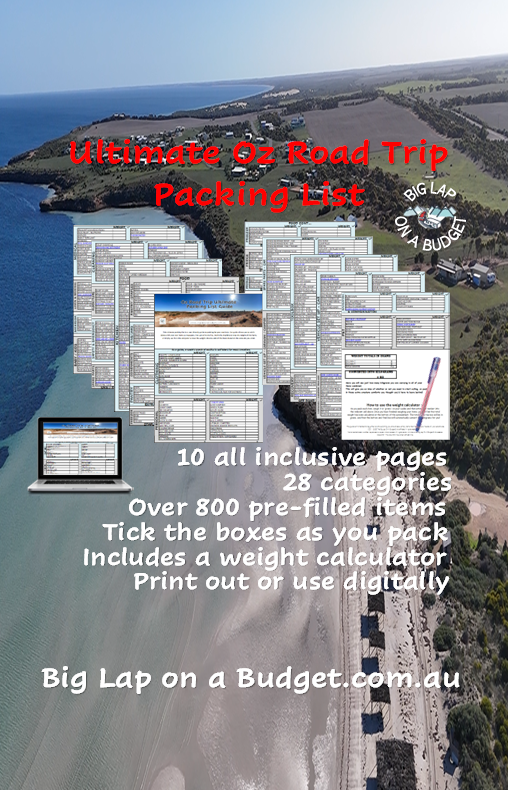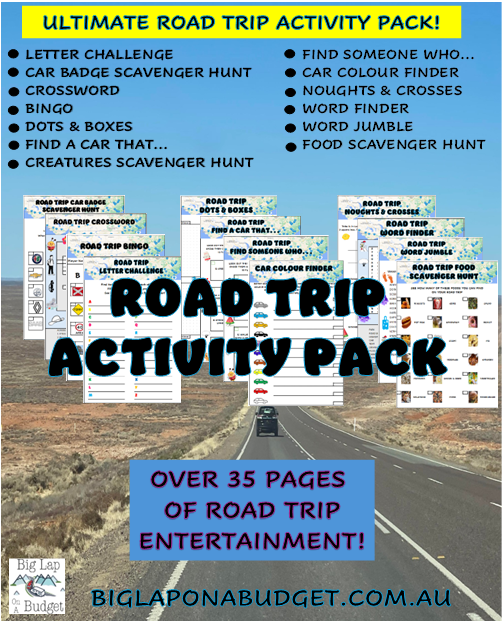Making your off grid caravan trip last longer
- Chelsea
- May 18, 2024
- 5 min read
Updated: Feb 6
Tips to keep you and your caravan off grid longer

Heading off grid generally means you are going remote with no access to mains power or a water connection. It may sound daunting, however, if you have your caravan and tow vehicle set up well, you will be surprised just how many amazing places you will discover off the beaten track! And, not to mention, cheap accommodation.
Let’s begin with preparing to go off grid and things that need to be considered when embarking on this way of caravanning.
Be familiar with your power needs
Power is going to be the heart of your caravan. So many items that we all use these days need to be charged. From phones, ipads, drones and the list goes on. Depending on how many items you have to run in your caravan will depend on what size power system you will need. If you are planning on running a fridge, microwave and air conditioner, you are going to need a pretty big set up. Also take into consideration the lighting in the van, the size of the fridge and remind everyone to minimise opening (and leaving open while they decide what they want) and closing the fridge door.
Also consider torches and work lights for lighting at night if your caravan batteries are getting low. We charge them during the day while we are making more power than we can use, and come night time these work amazing in our tiny home on wheels!
You can also consider using portable solar panels if your set up is partially shaded or just not getting enough sun. Our car is set up with a 350w solar panel, plus we have a solar blanket and 5 solar panels on the roof of the van. But in the winter months or cloudy days we find ourselves chasing the sun a little.

Charge up
Before embarking on your amazing journey, you want to start on the front foot. Have all of your devices charged as well as making sure the caravan battery is full. Have the fridge and freezer running at your desired temperature.

Food
Depending upon how many mouths you are feeding, will determine how much food you will need. Space in the fridge and the cupboards is going to be prime real estate and it is going to take some effort to make everything fit, with some sort of organisation. And being organised is key to a successful tiny home working for everyone.
If you’re going remote where any kind of store is few and far between, food products with a long expiry are definitely the way to go. Canned meals and frozen foods are always a winner. Wraps instead of bread loaves also are a great alternative. Wraps generally have a couple of months on their expiry date, whereas you’re lucky to get a week out of a loaf of bread. And don’t forget the UHT milk, or even powered milk. These last so long!
We decided to set up our fridge / freezer in the back of the car. We mostly use the freezer section for pre made meals and frozen veggies. And the fridge section is predominantly for drinks instead of taking up space in the caravan fridge.
If you don’t have a car fridge and need the extra space, a simple esky would work just fine for a few days depending upon the weather. But you will need to replenish the ice at every opportunity to maximise using the esky.
When it comes to running a caravan fridge, they generally run on gas when not plugged into mains or not connected to 12v from your car via an Anderson plug while driving. It’s always a good idea to have plenty of gas available.

Start with an empty toilet cassette
Having a toilet on board is an absolute luxury in a caravan. Especially for those who make a trip to the toilet once or twice a night. But emptying one of these is sometimes a little difficult when it comes to locating a dump point. Many of the bigger servos have them tucked away at the back of their site, as do most caravan parks. But beyond those, there are a couple of apps that can help locate a dump point. So wherever possible, we stop and empty as we don’t know where the next opportunity is.

Water
Water is one of those commodities that we need to be careful with using. Many caravans have a washing machine, a shower, toilet, and sinks. When going off grid, water can be hard to find so best have extra water cans full.
Most caravans have at least one tank under the van. If you’re lucky you will have 2. We also carry 2 x 20 litre drums in jerry can holders fitted to the back of our van.
Generally speaking, the average water consumption to aim for is 10 litres per person per day. This includes a shower, drinking water and doing the dishes. But sometimes this can go pear shaped if you aren’t familiar with your personal water usage.
There are many ways to lower the usage. It just takes a little bit of effort to adjust. Especially missing out on a nice long hot shower. Things like leaving the dishes to once a day instead of washing up after each meal, keep a bucket of water handy for washing hands and for more tips that we have written about, check out our blog on minimising water usage here.
When collecting water, many servos have a tap near the air machine. Some playgrounds have a tap available where you can fill a water can. Consider showers at truck stops, information centres and free camp sites. Some caravan parks will allow you to use their showers for a small fee also.
Washing your clothes can easily be done in a laundromat (at a cost), also in a truck stop while you’re showering or even in the river or a lake. Showers and washing clothes are the biggest water vampires.
Pick up supplies
More often than not, there’s no security at free and low cost camping areas. No boom gates that most caravan parks have and not a lot of people wondering around to notice anything sketchy going on.
With this in mind, we have decided to begin our test run without the both of us having to leave the van on its own. Before we check out of our previous destinations, we head to the local supermarket to collect supplies that we will need for the next few days.

Organise firewood
With the idea of off grid camping, comes the idea of being able to have our own little fire. Quite a few places do not allow you to burn anything that’s laying on the ground. And cooking over a fire will save you a bunch of gas! We collect 20kg bags of firewood from the local hardware store before we set off remote.

When possible, it is a good idea to give your set up a test run before you set off remote.
Leave with full gas bottles, empty toilet cassette, full water tanks and pantry, and clean clothes!
SAFE TRAVELS!
See how we installed a pure water tap
FOLLOW US:
2025 Big Lap on a Budget












Comments